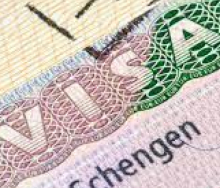Vaccine validity is becoming an issue for travellers to the EU and elsewhere.
The length of time that has passed since travellers’ second vaccination is coming under scrutiny as the pandemic unfolds and the nuances of COVID-19 variants become clearer to the global scientific community.
The EU announced in December that it had adopted new rules regarding the EU vaccination certificate, making it valid for a period of only 270 days instead of a year. According to the EU, this new validity period has been based on available scientific evidence as well as objective criteria. The EU is seeking uniformity and co-ordinated travel measures to minimise disruption and ensure that travellers are subject to the same criteria across the EU, according to website www.schengenvisainfo.com
The mobile apps used to verify the EU Digital COVID Certificates will be adjusted in order to verify whether 270 days have passed from the last vaccination date or not.
What this means is that those who wish to enter an EU country and who received the final COVID-19 shot earlier than the nine months prior to travel, may need to have a booster so that their vaccination certificate is recognised.
Several countries, including Austria and the Czech Republic, have already imposed such measures, and Iceland and Switzerland are the latest to adopt the 270-day validity period.
Latvia and the Netherlands will start applying the new rule from February 1. Dutch authorities have already warned that vaccine passports older than nine months will not be accepted for entry into the country.
However, Greece (where 66% of the adult population are vaccinated and 33% have had a booster) is planning to shorten the validity of the Greek vaccination certificate to seven months, for all age groups. Greek authorities have indicated that those who didn’t receive a booster shot within the seven-month time frame would be considered unvaccinated and could be subject to restrictions.
On February 1, the government of Qatar will reduce the vaccination certificate validity period for individuals fully vaccinated with any of the approved two-dose vaccines in the country to nine months.
Israel’s requirement for proof of vaccination on entry states that the final vaccine dose must have been received no more than 180 days before.














